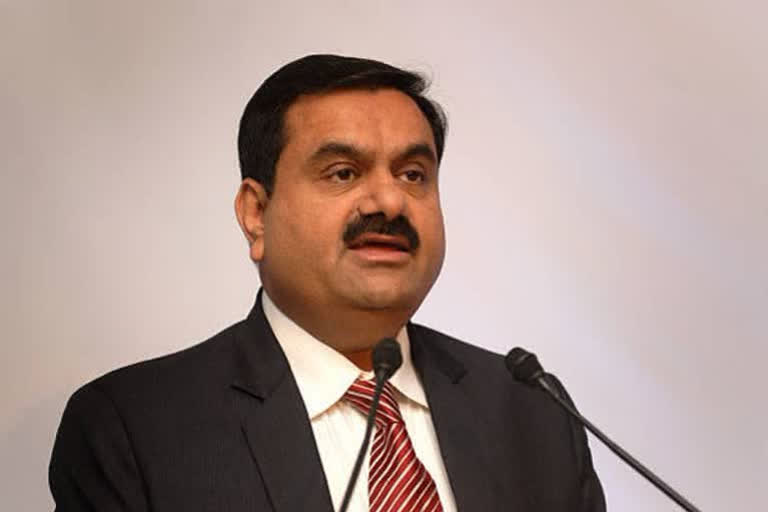New Delhi: Billionaire Gautam Adani has debunked the narrow fixation on GDP numbers, saying fundamentals are intact and India will be the second-largest economy by 2050 and has an edge over global peers in terms of business opportunities.
Speaking at the JP Morgan India Summit - Future in Focus, the Adani Group chairman said the AatmaNirbhar Bharat programme will be a game-changer.
"I will state without any hesitation – that – in my view - over the next three decades, India is the world's greatest business opportunity," he said.
India's geostrategic position and massive market size give it an edge over its global peers amid the fundamental political realignment of nations taking shape, he said adding opportunities for India are likely to accelerate on the other side of the pandemic.
"For the sake of the fans of the GDP metric, let's look at some statistics. The global GDP in 1990 was USD 38 trillion. Today, 30 years later, this number is USD 90 trillion. Projecting for another 30 years, in 2050 the global GDP is expected to be about USD 170 trillion with India becoming the second-largest economy in the world," he said.
The Indian economy shrank by a record 23.9 per cent in the April-June quarter because of the COVID-19 pandemic and the lockdown that followed. The economy is projected to contract for the first time in four decades, in the full year to March 2021.
But Adani said short-term setbacks due to a global crisis cannot be used to write off the country as its fundamentals remain intact.
"The current focus on standardised GDP predictions as against truly understanding what a nation could look like over a decade has unfortunately become one of the primary elements for measuring the health of an economy. In my view, patience and long-term planning and most importantly, an alignment with the government's business agenda are what creates the greatest value," he said.
Read more: RBI MPC reschedules policy review meet, new dates to be announced shortly
Speaking of challenges holding back India, Adani said that India needs USD 1.5 to 2 trillion of capital over the next decade but despite key structural reforms such as the National Investment and Infrastructure Fund and Credit Enhancement Fund, capital structure challenges, and lack of empowered and independent regulators remain bottlenecks to nation-building and investment opportunities.
The first generation entrepreneur, who built India's biggest infrastructure group with interests spanning from seaports to airports and energy, coaxed the audience to look at opportunities through his 'optimist' lenses.
"As an entrepreneur, I am an optimist, and therefore the lenses through which I see opportunities may be different than some of yours. I recognise that the view that you cannot build a long-term future on short-term thinking, may not be in alignment with the objectives of certain priorities of the investment community," he said.
He told the forum to stop viewing all nations through old Western growth metrics.
"Democracy cannot take a cookie-cutter approach and we should accept that different nations will have their own flavour of democracy and capitalism."
Stating that the AtmaNirbhar Bharat or self-reliant India programme will be a game-changer, he said India building a crumbling supply chain infrastructure that stood exposed to COVID-19, as also a strong head start in digital transformation will help re-build the economy.
(PTI Report)



